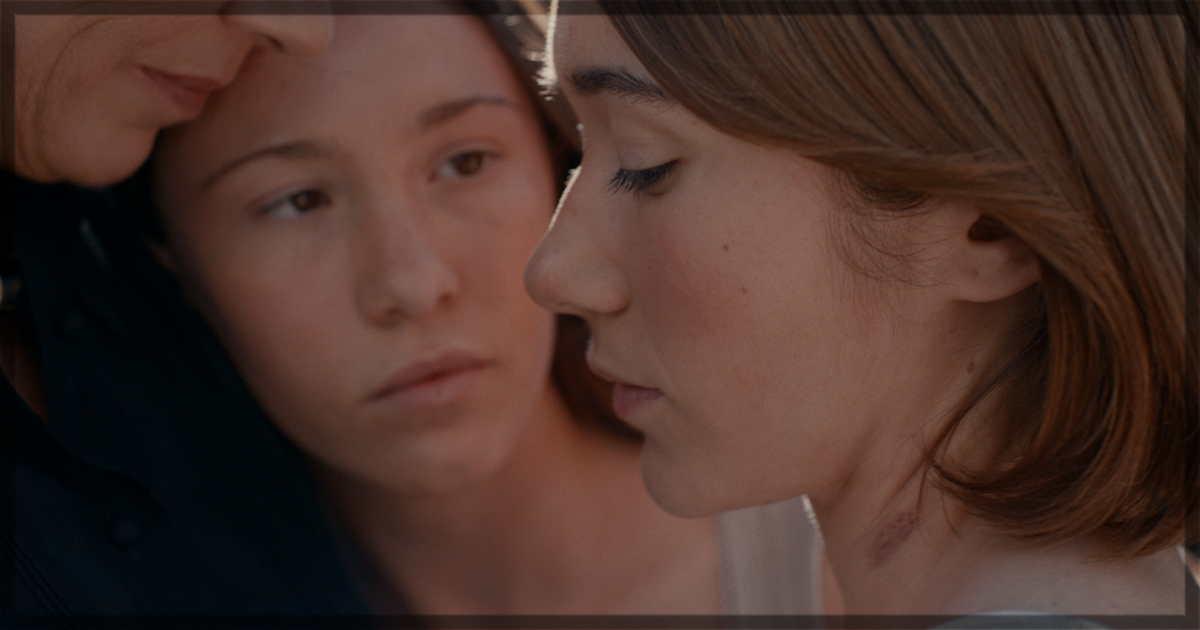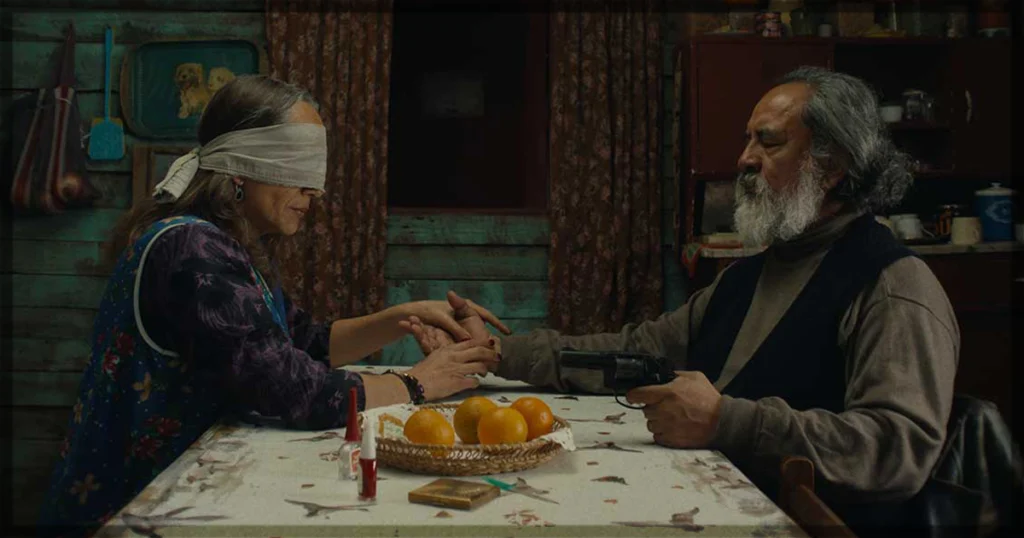The prestigious publication, Screen International, publishes a yearly article about buzzy films they would like to see playing in the festival circuit. In this year’s piece, Forastera by Lucía Aleñar Iglesias is one of the films mentioned there. It is an impressive feature to include in the list alongside notable names like Kleber Mendonça Filho, Joachim Trier, and Claire Denis. The film is a feature expansion of the 2020 short film, which has the same title. In that year, the film was selected for the Semaine de la Critique shorts slate and participated in the Gijón Film Festival and Curtas Vila do Conde in Portugal. The director follows the story with a broader view of the original work, introducing a few more characters and subplots to support the principal narrative thread.
Forastera narrates the story of Cata (Zoe Stein), a young woman staying in her grandparents’ beach house throughout the summer. She and her sister spend the days at the beach, swimming, and observing the other visitors in the ocean. Suddenly, the sense of normality in her life ends when she encounters her grandmother, Catalina (Marta Angelat), fallen to the ground. It all changes, particularly when her mother, Pepa (Núria Prims), travels from Madrid to the littoral to help with her father’s (Lluís Homar) adaptation to his new routine. Similar to many recent efforts in Spanish cinema, Iglesias portrays the coming-of-age of a young woman, drastically forced to become a fully formed adult. The director gravitates the film around Cata through her performer, Zoe Stein, who is the central figure of the film.
In a sense, Forastera reminds one of Carla Símon’s films, Estiu 1993 and Alcarrás, or even Los Tortuga by Belén Funes, growing stories set in Spain by female directors. It is more the structure and context proximity than the execution or story-wise resemblance; each of the mentioned films sets itself in different parts of Spain. Yet, it demonstrates the recent effort to tell stories from a feminine point of view; women using the cinematic device to share their experiences from the infancy or teenagehood. Forastera is an example of the proposition of narrating about grief and how one adapts to a new life without a loved one. Hence, Iglesias has a few coincidences with Símon’s works, drawing their stories from the grief and the pain of growing up without someone important. However, the director is aesthetically different from the Golden Bear winner, approaching realism filmmaking with a few brushes of horror to illustrate fear of the occult.
Furthermore, the director directs a straightforward story, investing more in the significance of each action rather than a complex core of subplots to develop its central character. From a holistic standpoint, Forastera is the typical summer film; an adolescent in a family member’s house, going through different experiences. Similar to a plethora of works, particularly American dramedies about the pains of growth, Cata has her usual spot on the beach, where she rows a kayak, and meets with her tourist boyfriend from Sweden. Consequently, the director distances herself from that through the heavy emotional baggage, Cata’s blame for finding her grandmother’s body. Additionally, there is a crucial relationship building between the woman and her grandfather, a grumpy older man who ought to explore how to continue his life alone now. Hence, Lluís Homar and Zoe Stein have a fascinating connection on the screen, both of them shining through a stellar back-and-forth of interactions, ranging from unconditional love to reckless arguments.
Another crucial point is the improvement of Stein’s star power, which is already in the short film but reaches a different level in the feature. The leading role dissonates from the rest; there is no room for the others to deliver much, apart from the already mentioned Lluís Homar. It is a film that concentrates on Zoe Stein, and she is talented enough to carry the story as a strong protagonist. There is a singular insecurity and fear in her eyes that provides depth to this young woman, who has plenty of thoughts and fears in her head. She has the most profound emotional connection with the grandfather, who has a different relationship with Pepa, her mother. Hence, the director inserts complex familiar conflicts in the story to enhance those dramatic elements, which works for most of the part.
Despite being a film predominantly focused on Zoe Stein’s presence, Forastera is an admirable feature debut by Lucía Aleñar Iglesias, who expands successfully on her short film and provides enough room for her lead actor to shine.
Forastera recently played at the Toronto International Film Festival.
Learn more about the film at the TIFF site for the title.
You might also like…
‘The Mysterious Gaze of the Flamingo’ Review: An Impressive Debut Film


